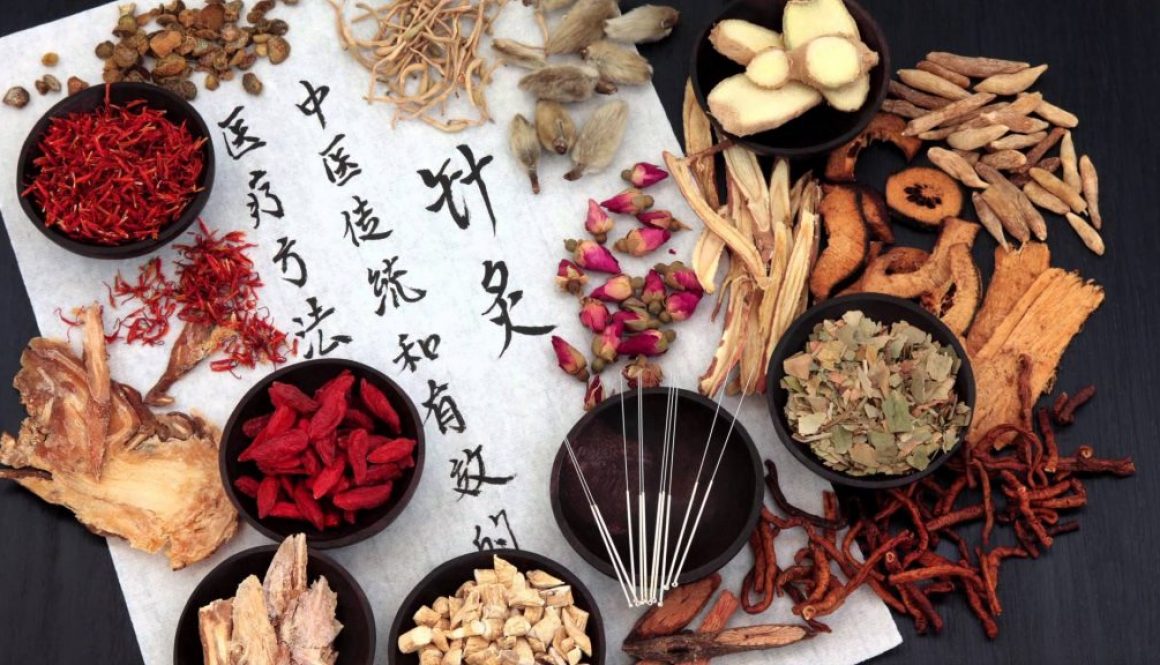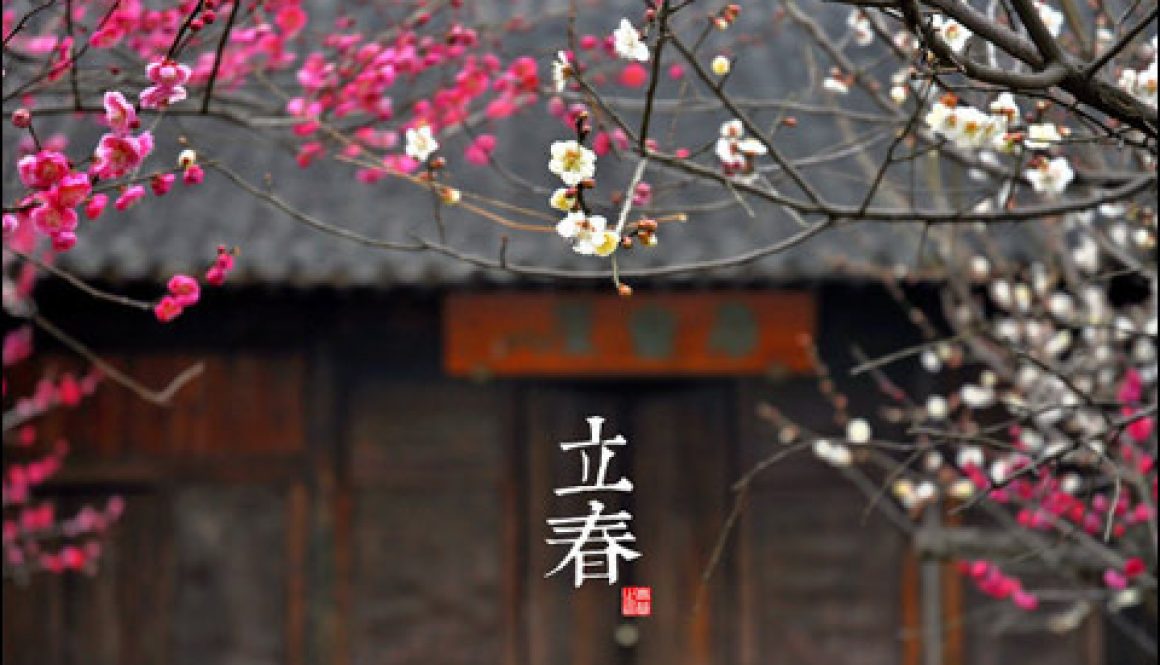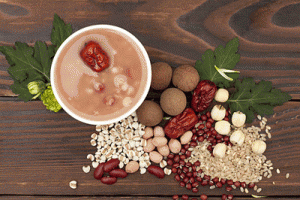
About channelnuke
Posts by :


立春 It’s spring time!
channelnuke Health spring new year health 立春
立春養生 讓你健康無比的6個養生方法
立春後的天氣漸漸變的暖和了, 但是現在的天氣還比較的寒冷, 那麼到了春季用什麼樣的方法養生才是最好最科學最有效的呢?你是否還不知道呢?去瞭解一下吧!
1、立春早起早睡以養肝
《黃帝內經》說:“春三月, 此謂發陳, 天地俱生, 萬物以榮, 夜臥早起,廣步於庭, 被發緩形, 以使志生, 生而勿殺, 予而勿奪, 賞而勿罰, 此春氣之應, 養生之道也。 逆之則傷肝……”。 意思是說立春開始後自然界生機勃勃, 萬物欣欣向榮, 這時人們應當順應自然界生機勃發之景, 早睡早起, 早晨去散散步, 放鬆形體, 使情志隨著春天生髮之氣而不可違背它, 這就是適應春天的養生方法。 違背了這種方法, 就會損傷肝, 這是因為春天生養的基礎。 因此, 春季以舒暢身體, 調達情志為養生方法。
2、防止舊病復發
古諺語:“百草回芽, 舊病萌發。 ”可見立春後是疾病多發的季節。 春天的多發病有肺炎、肝炎、流腦、麻疹、腮腺炎、過敏性哮喘、心肌梗塞、精神病等。 因此對於有肝炎、過敏性哮喘、心肌梗塞等的患者要特別注意調養預防。
3、不要過早減衣
“春不減衣, 秋不戴帽”。 立春氣溫還未轉暖, 不要過早減掉冬衣。 冬季穿了幾個月的棉衣, 身體產熱散熱的調節與冬季的環境溫度處於相對平衡的狀態。 由冬季轉入初春, 乍暖還寒, 氣溫變化又大, 過早減掉冬衣, 一旦氣溫下降, 就難以適應, 會使身體抵抗力下降。 病菌乘虛襲擊機體, 容易引發各種呼吸系統疾病及冬春季傳染病。
4、每天梳頭百下
《養生論》說:“春三月, 每朝梳頭一二百下”。 春季每天梳頭是很好的養生保健方法。 因為春天是自然陽氣萌生升發的季節, 這時人體的陽氣也順應自然, 有向上向外升發的特點, 表現為毛孔逐漸舒展, 代謝旺盛, 生長迅速。 故春天梳頭, 正符合這一春季養生的要求, 有宣行鬱滯,疏利氣血, 通達陽氣的重要作用。
5、少吃補品和鹽
很多人崇尚冬季進補, 但是立春後進補要適度。 一年四季有“春生、夏長、秋收、冬藏”的特點。 人生於自然, 應順應自然規律。 冬季根據個人體質適量進補, 符合冬藏的養生原則。 但立春之後的這段時間裡, 不論是食補還是藥補, 進補量都要逐漸減少, 以便逐漸適應即將到來的春季舒暢、升發、條達的季節特點。 與此同時, 減少食鹽攝入量也很關鍵, 因為鹹味入腎, 吃鹽過量易傷腎氣, 不利於保養陽氣。
6、多吃韭菜和香菜
春季陽氣初生, 飲食的調養除了注意升發陽氣,還要投臟腑所好, 應適當吃些辛甘發散之品, 不宜吃酸收之味。 因為酸味入肝, 具有收斂之性, 不利於陽氣的生髮和肝氣的疏泄。 食物可選擇辛溫發散的蔥、香菜、花生、韭菜、蝦仁等, 少食辛辣之物。
立春養生法

肝火旺要飲食清淡
春季肝火過旺容易肝胃不和, 所以春天人容易上火, 出現舌紅苔黃、口苦咽幹、口唇生瘡, 牙齦腫痛等, 因此飲食宜清淡, 忌油(油炸食品)膩、生冷及刺激性食物。 可適當配吃些清解裡熱、滋養肝臟、補脾潤肺的食物, 如枇杷、梨、薏苡仁、薺菜、菠菜、芹菜、菊花苗、萵筍、茄子、荸薺、黃瓜、香蕉、生梨等。比如菊皇茶, 裡面有菊花、枸杞子、蓮子心、膨大海、陳皮、甘草組成, 根據中醫理論, 菊花、枸杞子可以滋補肝腎、養肝明目, 用於兩目乾澀、頭昏眼花;菊花又可以疏風清熱, 膨大海、甘草又可以清宣肺氣、清腸通便, 用於肺氣閉鬱、痰熱咳嗽、聲音嘶啞、熱結便秘等;陳皮為睥肺二經的氣分藥, 可以理氣調中、燥濕化痰;蓮子心又可以清心安神, 所以春天常飲菊皇茶可以達到滋養肝臟、補脾潤肺、清解裡熱的作用。
多甜少酸補益脾胃
春季進補還應多吃些甜味食物, 少吃酸味食物。
甘味食物能滋補脾胃,但要注意的是, 這裡的“甘味”除了指食物的口感有點甜外, 更重要的是要有補益脾胃的作用。 在這類食物中, 首推山藥和大棗。 山藥味甘性平、健脾益氣, 經常食用可提高機體的免疫力, 平時容易出現多汗、反復感冒的氣虛患者在春季更應該格外注意適度增加山藥的攝入量。
結語:在春季養生到底怎樣才最科學現在你已經知道了吧!如果還有什麼問題的話你還可以多多諮詢一下其他相關資訊, 讓自己更加的瞭解春季養生的妙招。

Healthy Life
channelnuke Health ancient chinese, healthy life, live longer, longevity
8 Ancient Chinese Tips for Long Life
1. The head is the center of intelligence: comb three times daily to prevent diseases.
According to Traditional Chinese Medicine, the twelve meridians of the human body, forty-plus acupuncture points, and more than a dozen unique acupressure points, all come together at the head.
Using a comb to apply “acupuncture-like” massage or stimulation to these points and meridians can clear the twelve meridians, promote blood circulation, enhance brain cell metabolism, delay the aging of brain cells, enhance memory, strengthen hearing and eyesight, and refresh the mind. It can also eliminate fatigue, insomnia, trigeminal neuralgia (extreme facial pain), and migraines. It can even have unexpected effects on beauty.
The normally suggested routine is to comb three times a day: once in the morning, once after lunch, and again before going to bed—each time for two minutes, using 60-100 strokes, for the best results. As long as you persevere in combing your scalp regularly, you’ll feel more clear-headed and energetic, sleep better, your white hair will turn black again, and you’ll have a bigger appetite.

2. The foot is often considered the second heart: rub the feet often to preserve health.
Traditional Chinese medicine states that the foot has more than 60 acupuncture points which are closely linked with the 12 meridians of the internal organs. However, due to the large distance between the foot and the heart, the foot’s resistance is low and is the body’s weakest area, since it is vulnerable to cold and dampness. Therefore the health of the foot is believed to be closely related to the health of the human body as a whole.
Ancient medicine says that the best way to maintain foot health is to rub the Yongquan acupuncture point (center of the arch). Consistent massage of the soles of the feet after soaking in hot water can have a variety of beneficial effects on the tendons, blood circulation, and muscles of the feet, and even other areas of the body. It can alleviate headaches, hernias, nephritis, convulsions, insomnia, hypertension, heart disease,, sore throat, cracked feet, numbness from old age, and a variety of other illnesses.
Because of the overall health effects related to the health of the feet, Chinese medicine refers to the Yongquan point as the “fitness point.”
3. Swallow saliva three hundred times a day to live longer.
The Chinese dictionary, or Ci Hai, defines saliva as: the liquids secreted by salivary glands and the mucus secreted by many small glands in the oral wall, which are mixed together in the mouth. The average adult salivates about 1 to 1.5 liters every day.
Chinese medicine states that saliva, in conjunction with the spleen and stomach, moistens the orifices and limbs and internal organs, replenishes energy, lubricates the joints, and clears the mind.
Modern medicine states that saliva stops bleeding, eases contraction of theblood vessels, dissolves bacteria, kills microbes, preserves dental health, combats viruses, aids digestion, and serves a variety of other functions.
In recent years, American scientists have also discovered that saliva can promote nerve and epidermal cell growth. The Japanese Food Research Institute found that “saliva can eliminate very harmful substances existing in the air and in food” and has a strong effect in preventing cancer.
Studies by experts at the University of Georgia’s School of Medicine show that aflatoxin, which is among the most carcinogenic substances known, as well as benzene and nitrite, will disintegrate 30 seconds after direct contact with saliva. They suggest that “It is best to chew every bite 30 times.”
These studies seem to support the ancient advice to swallow saliva 300 times a day.
4. Click your teeth every day to help prevent their falling out.
Clicking your teeth means to rhythmically tap your upper and lower teeth together repeatedly.
Su Wen: Shang Gu Tian Zhen Lun, an ancient Chinese text, suggests that the health of human bones depends on marrow nutrition, and that bone marrow is the origin of the essence of the human body. If this essence diminishes, it may not be sufficient to support the bone marrow, and one’s teeth will become loose or diseased, or fall out entirely.
Traditional Chinese medicine also believes that often tapping one’s teeth can balance yin and yang, encourage blood circulation and meridian energy flow, maintain and enhance the overall function of the jaw muscles and the root portions of teeth, and delay atrophy.
In addition, often tapping one’s teeth can effectively enhance the tenacity of mucosal tissue, improve chewing, promote the overall blood circulation of the mouth and gums, increase saliva secretion, enhance antimicrobial resistance of teeth, and therefore make the teeth more robust, white, and shining.
5. Husbands and wives should massage each other’s backs to relieve physical fatigue and prevent cancer.
Massaging the back is an ancient method that provides immediate results.
Massaging the back stimulates dozens of important acupuncture points which can help stimulate the nervous system, effectively maintaining the balance of the central nervous system.
The primary benefit is muscle relaxation; preventing and treating back pain and muscle strain.
Secondarily, back massage promotes better circulation and regulated nerve function. Massaging during the day clears the head and lifts the spirit; massaging during the night soothes the mind, preventing insomnia.
Another benefit of massage is enhanced immunity and cancer prevention. Japanese scientists have long believed that frequent back massage promotes peptide secretion in the brain. These peptides have strong anti-virus capabilities and can inhibit cell mutation, the basis of cancer cell creation.
There are usually two methods of back massage: patting and hitting.
Patting uses an empty palm, and hitting uses an empty fist—empty, in this regard, means gentle. For best results, massage consistently once a day, fifty to sixty pats or hits.
6. Knead the abdomen daily to promote blood circulation and benefit the spirit.
Kneading the abdomen is a method to promote health that uses the hands to rub back and forth between the chest and pelvis. Traditional Chinese medicine says that the abdomen is the “center of the internal organs and the source of yin and yang” in the body.
Modern medicine also says that kneading the abdomen strengthens the stomach and the gastrointestinal and abdominal muscles, promotes circulation, and accelerates digestion. It also helps treat constipation, ulcers, insomnia, inflammation of the prostate, nephritis, hernias, high blood pressure, coronary and heart disease, and diabetes. In particular, kneading promotes self-contraction of the abdomen and reduction of fat; it can even help with weight loss.
To knead the abdomen, first rub in the clockwise direction with the heel of the right hand 130 times above the navel and then move below the navel area for 120 times. Afterwards, rub the whole abdominal area with the full palm of the left hand 120 times. Reverse and repeat.
7. Stretching is the most effective way to lose weight and promote blood circulation.
Lazy Stretching: this refers to an involuntary stretch (which often accompanies yawning) that involves straightening the neck, lifting the arms, taking large breaths to expand the chest, stretching the waist, exercising the joints, and loosening the body.
Sun Simiao, a famous physician of the Tang Dynasty, said it best, “If blood does not circulate, the body will be afflicted with diseases.”
According to modern medicine, blood circulation relies completely on the heart muscle contractions, which is especially true for veins farther away from the heart.
When one stretches, the body will naturally bring the arms and ribs upward and expand the chest, which strengthens the diaphragm and assists with deep breathing. This causes many of the muscles to contract and deposit blood back to the heart, resulting in an acceleration of blood circulation.
Lazy stretching can also help the neck vessels efficiently transport blood to the brain, bringing adequate nutrition there, reducing fatigue, and thereby raising the spirits. This also exercises the neuromuscular system, promoting balance within the body; increases oxygen intake and carbon dioxide outtake, promoting metabolism; and eliminates excessive tension, preventing muscle strain and correcting the posture—all of which keep the body healthier.
8. Press the Hegu, Neiguan, and Zusanli acupuncture points once a day for a healthy body.
The Hegu point is in the area between the thumb and the index finger. Acupuncture at the Hegu point helps treat headaches, facial paralysis, and diseases involving the five senses.
The Neiguan point is located about 2 inches from the crease of the wrist. Acupuncture at the Neiguan point primarily helps treat heart palpitations, high blood pressure, epilepsy, asthma, stomach pain, nausea, and vomiting.
The Zusanli acupuncture point is about 3 to 4 inches below the center of the knee. It has the function of regulating the stomach, replenishing energy, promoting circulation through the meridians, and dispelling wind and dampness, according to the language of . Traditional Chinese Medicine.
Modern scientific research confirms that performing acupuncture on the Zusanli point stimulates the stomach and intestines, as well as a variety of digestive and enzyme activity. It can increase one’s appetite, help digestion, enhance the ability of the brain, improve heart function, increase red and white blood cell production and hemoglobin and endocrine hormone levels, and improve the body’s resistance to disease.
Acupuncture on the Zusanli point also helps prevent stomach and abdominal pain, vomiting, constipation, diarrhea, hepatitis, gall bladder inflammation, and high blood pressure.
Zusanli, Hegu, and Neiguan are three of the main acupuncture points used by ancient physicians in medical treatment.
In recent years, Chinese scientists have discovered that massaging these three acupuncture points benefits the body’s nerves, muscles, tissues, and organs; positive effects surpass that of any physical sport.
Press the Zusanli, Hegu, and Neiguan points for five minutes each, pressing the point15-20 times with the thumb or middle finger.